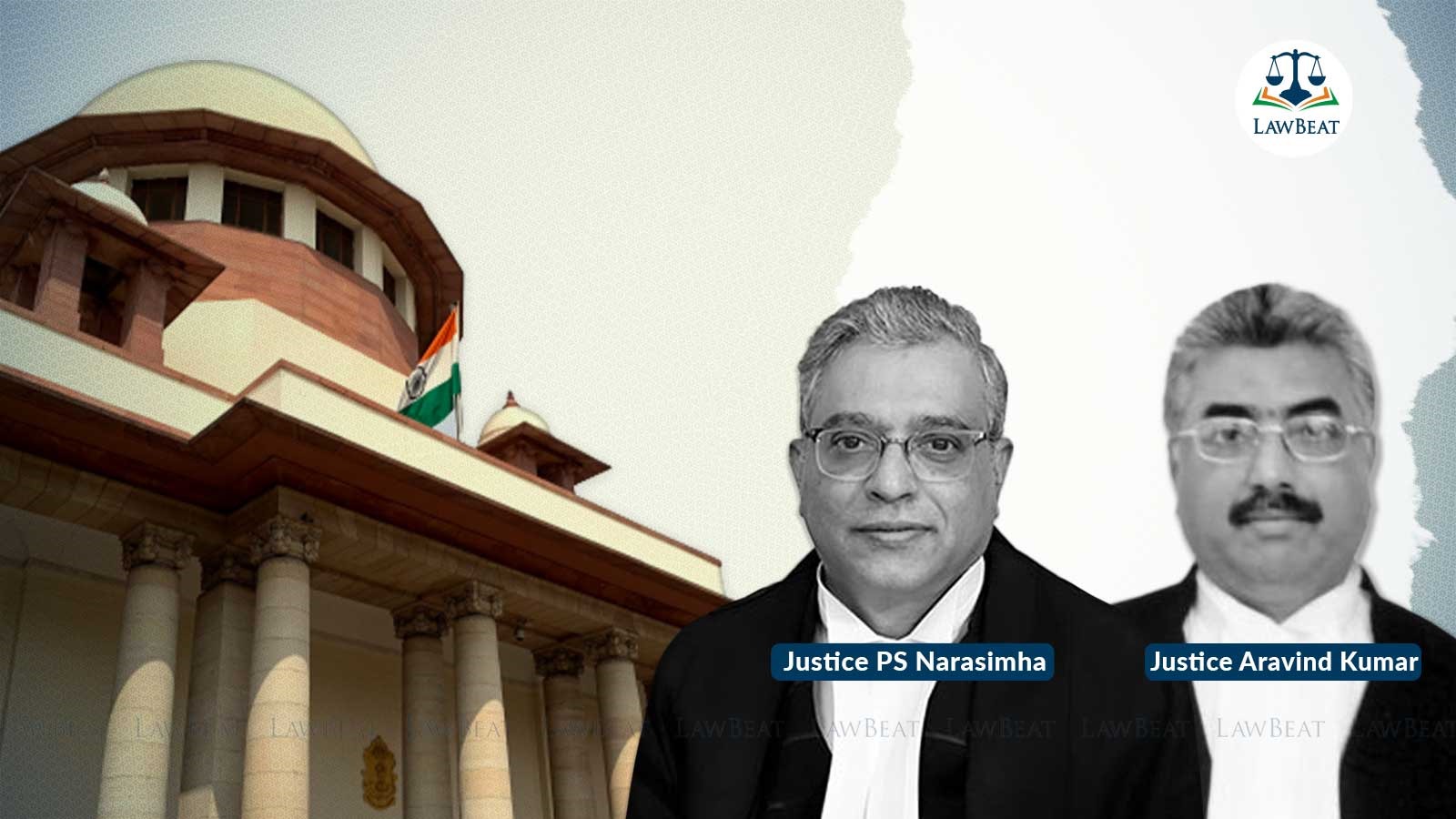Substituted provision, subject to statutory prescriptions, can also operate retrospectively: SC

Court enunciated on the principle and allowed an appeal filed by multi-national alcohal beverages company Pernod Ricard India (P) Ltd and others against the Madhya Pradesh High Court's judgment
The Supreme Court has said that the principle governing subordinate legislation is slightly different in as much as its operation is determined by the empowerment of the parent act and the substituted provision in such cases, subject to statutory prescriptions, can also operate retrospectively.
"The legislative authorisation enabling the executive to make rules prospectively or retrospectively is crucial. Without a statutory empowerment, subordinate legislation will always commence to operate only from the date of its issuance and at the same time, cease to exist from the date of its deletion or withdrawal. The reason for this distinction is in the supremacy of the Parliament and its control of executive action, being an important subject of administrative law," a bench of Justices P S Narasimha and Aravind Kumar said.
The court explained that a repealed provision will cease to operate from the date of repeal and the substituted provision will commence to operate from the date of its substitution.
However, the bench said, "This principle is subject to specific statutory prescription. Statute can enable the repealed provision to continue to apply to transactions that have commenced before the repeal. Similarly, a substituted provision which operates prospectively, if it affects vested rights, subject to statutory prescriptions, can also operate retrospectively."
The court enunciated on the principle and allowed an appeal filed by multi-national alcohal beverages company Pernod Ricard India (P) Ltd and others against the Madhya Pradesh High Court's judgment, which rejected their contention for imposing reduced penalty under the Madhya Pradesh Foreign Liquor Rules, 1996.
The court pointed out subordinate legislation, by its very nature, rests upon the executive’s understanding of the primary legislation. When a court is of the opinion that such an understanding is not in consonance with the statute, it sets it aside for being ultra-vires to the primary statute.
The issue before the court was the applicability of the relevant rule for imposition of penalty; whether it is the rule that existed when the violation occurred during the license period of 2009-10 or the rule that was substituted in 2011 when proceedings for penalty were initiated.
The bench held, "The purpose of the amendment is to achieve a proper balance between crime and punishment or the offence and penalty. In light of this, and recognising that classifying offenders into before or after the amendment for imposing higher and lower penalties does not serve any public interest, we have directed that the substituted Rule alone will apply to pending proceedings."
The court noted that 1996 Rules regulate the grant of license for manufacture and bottling of foreign liquor, procurement of spirit, storage, quality and control, sale, export, verification etc. Rule 19 provides for penalties for contravention of any of the Rules or provision of the Act. There are different penalties for violation of different rules.
It pointed out that the regulatory process requires the Government to deal with the problem of diversion and unlawful sale of foreign liquor and also provide an appropriate penalty and punishment.
"The process of identifying a crime and prescribing an appropriate punishment is a complex and delicate subject that the State has to handle while making rules and enforcing them. The gravity of the offence, its impact on society and human vulnerability are taken into account to provide the required measure of deterrence and reform. Day to day working of the Rules, reposing their effectiveness, ineffectiveness, deficiency of deterrence, disproportionate penalty having a chilling effect on genuine businesses, are some routine factors which require the executive to make necessary amendments to the rules," the bench said.
In this context, the bench said that depending on the nature of offence, the proportionate penalty is required to be modulated from time to time.
"In light of this, we can appreciate that the felt need of the State to amend and substitute Rule 19 which provided a higher penalty at four times the duty, with a simple penalty not exceeding the duty payable," the bench said.
The court further said that if the amendment by way of a substitution in 2011 is intended to reduce the quantum of penalty for better administration and regulation of foreign liquor, there is no justification to ignore the subject and context of the amendment and permit the State to recover the penalty as per the unamended Rule.
"The subject of administration of liquor requires close monitoring and the amendment must be seen in this context of bringing about good governance and effective management. Seen in this context, the principle of Section 10 of MP General Clauses Act, 1957, relating continuation of a repealed provision to rights and liabilities that accrued during the subsistence of the Rule does not subserve the purpose and object of the amendment," the bench said.
The court rejected a submission by the State that the substituted Rule cannot be given retrospective effect.
"We are not in agreement with this submission either. It is wrong to assume that the substituted Rule is given retrospective effect if its benefits are made available to pending proceedings or to those that have commenced after the substitution. Rule 19 which was substituted on 29.03.2011 is made applicable to proceedings.that have commenced with the issuance of the demand notice in November, 2011. The Rule operates retroactively and thus saves it from arbitrarily classifying the offenders into two categories with no purpose to subserve," the bench said.
